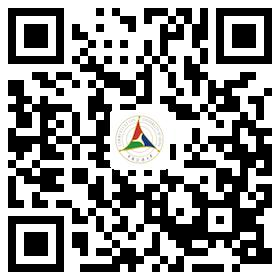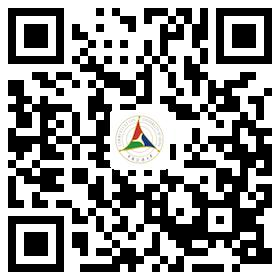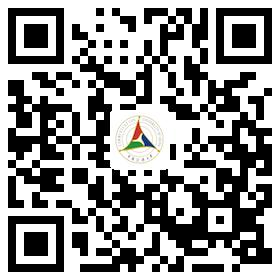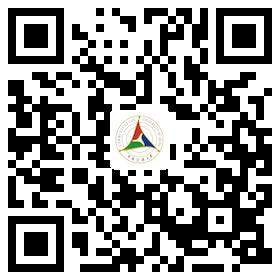On the morning of April 17, during the Beijing International Film Festival, the opening ceremony of 2017 Sino-Foreign Audiovisual Translation & Dubbing Cooperation Workshop is officially launched. The workshop is jointly hosted by the Ministry of Culture and the State Administration of Press, Publication, Radio, Film and Television of China (SARFT), organized by the Communication University of China (CUC), and co-organized by China Radio International (CRI), China International Television Corporation, Chinese Culture Translation and Studies Support Network (CCTSS), and Star Times Group, with the support of the Research Centre of Films and Television of SARFT and the Organizing Committee of Beijing International Film Festival.
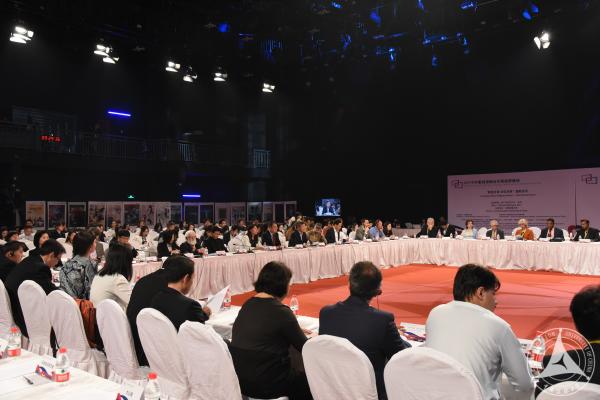
The theme of this workshop is “Translating Films, Bridging Cultures”, with 26 international guests varying from presidents of film festivals, distributors, and translators who come from 24 countries such as Mongolia, Vietnam, Japan, Brazil, Russia, France, UK, Austria, Italy, Finland, Mauritius, Tanzania, Côte d'Ivoire, Armenia, US, Canada, Egypt, Pakistan, and Afghanistan. The event also attracted more than 60 Chinese film and television organizations, and promoted a total of 304 film and television works for international guests, including 179 films, 58 dramas, and 67 documentaries.

On the opening ceremony, Zhu Qi, deputy director of the Ministry of Culture, said the purpose of the workshop was to strengthen the cooperation and exchange of Sino-foreign films and TV dramas, culturally; to deepen the understanding of all the personage of the translation of films and TV dramas; to share the development of contemporary China’s film and television art with other countries; to seek for the opportunities for further cooperation; to exchange the translation and dissemination methods of translating and dubbing; and to reduce the barriers between Chinese audiovisual culture and foreign culture. The workshop is a high-level, sustainable, pragmatic, mutual-aid, and reliable communication platform, and thus can promote more excellent film and television works to reach the goal of film translating, bridging cultures through high-level translation cooperation, as well as achieving in-depth exchanges, increasing understanding between our people, and boosting cultural mutual references.
Zhou Jihong, Deputy Director General of International Cooperation Department of SARFT, said the translation of film and television works was not only conducive to overcoming the language barrier, expanding the scope of communication, enhancing the communication effect. And the dubbing can show the respect to the local language and win the intimacy and identification of the local people. The mission of translation lied in the cross-border, cross-language, and cross-cultural communication. A successful film or television works not only reflects the translator's professional ability, cultural literacy, artistic attainments, but also reflects the extensive feeling which seek common ground while reserving among different cultures. Film and television translators can become walkers, singers and messengers who promote cultural exchanges, and facilitate film and television works to become a carrier of civilization and mutual understanding, as well as a bridge to deepen mutual understanding and trust.

Prof. Liao Xiangzhong, Vice President of Communication University of China (CUC), said with the continuous exchanges of Chinese and foreign film and TV dramas, and the development of China's film and television industry, there has been a gap between the demand for industry and the training of talents in universities, so that’s why the training of talents is of urgency and importance. In 2003, Communication University of China (CUC) was the first one that started a major of Audiovisual Translation. With distinctive media features and multi-lingual advantages, CUC, formed a system of MA degree, Mater degree, and PhD degree of audiovisual training system, which has cultivated and transported a large number of excellent translators for the community. In the future, CUC will continue to give full play to the teaching research and historical experience of film and television field, innovate the teaching method, foster first-class talents and make greater contributions for Chinese and foreign film and television exchanges.
Li Zuowen, dean of School of International Studies explained the teaching system of the major Audiovisual Translation and said that the CUC will continue to make full use of its advantages in teaching and research experience in the field of Audiovisual Translation ,to innovate the model of teaching, to cultivate high-caliber personnel, and make a greater contribution to the cultural exchanges between China and the rest of the world.
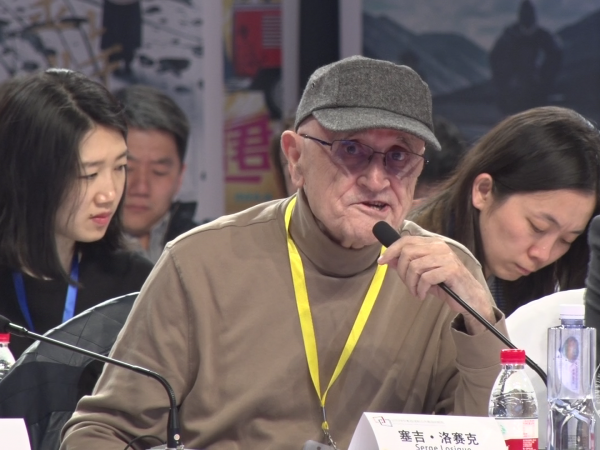
Mr. Serge Losique, president of the Montreal International Film Festival, told the language played an important role from the silent films to the sound films. He also expressed his expectation to the workshop.
In the keynote speech, Zhu Yannan, director of Development Research Center of SARFT, explained China's funding policy to "Audiovisual Translation and Dubbing Coopration" and "Audiovisual Transaltion". Finland Turku University Lifetime Honorary Professor Yves • Gambier (Yves Gambier), Luis Perez-Gonzalez, director of the Center for Translation and Intercultural Studies at the University of Manchester, and Professor Ma Zhengqi, and associate professor Jin Haina, experts in the field of Chinese film and TV dramas translation, shared their views on the theme of audiovisual translation and dubbing respectively with other guests.
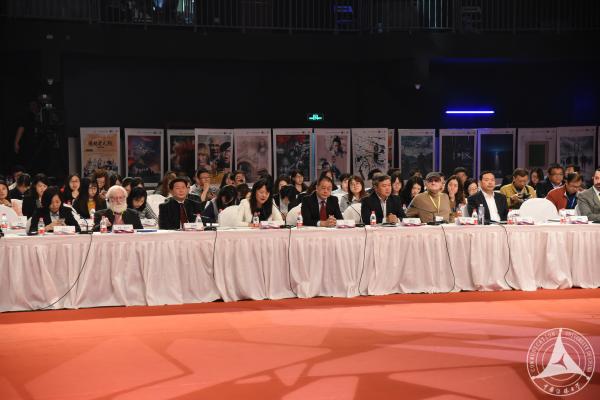
More than 30 experts and scholars from domestic universities participated in the workshop, which left far-reaching and significant meanings for the teaching and training of audiovisual talents. The teaching system is interdisciplinary, combining two disciplines-- film and television and translation, and is based on the social needs and thus able to cultivate the country's much-needed talents whose language level and humanistic literacy are solid, with theoretical knowledge, practical ability, international vision and strong cross-cultural communication ability, thus introduced fresh blood into audiovisual translation of China and made contributions to Chinese and foreign audiovisual exchanges.
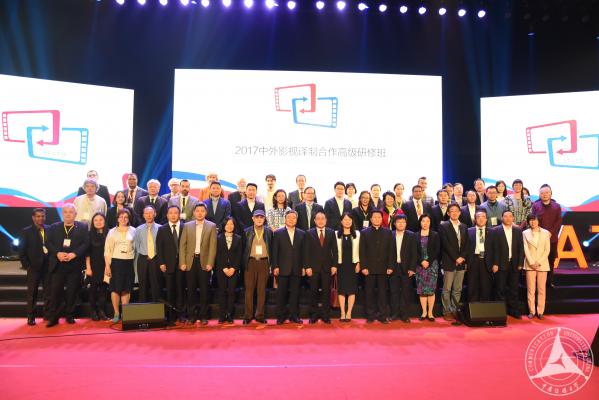
From 2015, Ministry of Culture, the State Press and Publication of SARFT jointly organized the Sino-foreign audiovisual translation and dubbing workshop two times, and introduced the international communication platform and mechanism. This year’s workshops are to be held during the Beijing International Film Festival and Shanghai International Film Festival. The 2017 Sino-Foreign Translation and Dubbing Workshop • Beijing is to be held from April 17 to April 21. The international experts who participated in the workshop, will carry out exchange of experiences, choice of works, Q&A and other pragmatic collaborations with Chinese experts through the "Forum", "the world's 4K high-definition network live" “story salon of Chinese and foreign film and television "," movie market road show "and other activities.
Source: School of International Studies
Written by: Tian Shiyu, Guo Dazhi
Edited by: Cao Wanchen







